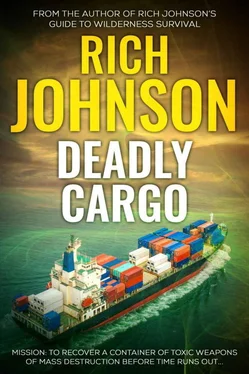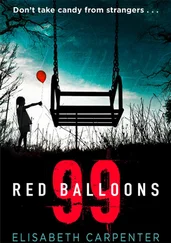“Coming your way,” Ignacio said cheerfully. The shot glass of amber liquid slid across the polished bar and Sleagle caught it with a practiced hand and raised it to eye level as he quickly bowed his head. He couldn’t count the times he had been in the Papagayo, sitting on this same barstool, downing this same drink, engaging in this same ritual.
Of all the places his career had taken him around the world, Panama was among his favorites, but not because of its scenery, and not even because of the Papagayo: it was the canal itself. The place seemed to defy the odds. Every time he transited the canal, he thought about the thousands of lives lost to accidents, yellow fever and malaria during its thirty-four years of construction. Of the 80,000 people who worked on the canal during the French and American construction years, nearly 30,000 died here. His great-grandfather, Cornelius Sleagle, was one of them. And yet, even with the losses, the project went on.
The human toll was huge, but while governments are sometimes capable of turning a blind eye to the cost in skin and bone and blood, they do not so easily ignore the financial expense. At more than $352,000,000 of 1914 US dollars, the canal was the most costly construction project the United States had ever undertaken up to that time. Money was poured into the job and, in spite of the rising death toll, occasional poor management, perpetual lack of equipment, and seemingly impossible engineering challenges, the canal was built. And now, just shy of a century later, abandoned by the ambivalent political interests of its American creator and left to the whims of local dictators and Chinese opportunists, the canal continued to live. No matter how many lives it claimed, the canal itself seemed to defy death. In the Papagayo, Captain Sleagle always bowed his head and raised his glass in a silent toast to the canal and to his great-grandfather.
Unlike many who prefer to toss back their shot of liquor, Sleagle nursed his, letting the warm liquid do its work slowly. Over the din of voices coming from the small cluster of people surrounding the pool table, he heard the word ‘hurricane’, and it immediately caught his attention. The word came from the television that was suspended near ceiling level in one corner above the bar.
“Ignacio,” Sleagle called out. “Can you please turn up the volume? I want to hear this.”
The barkeep nodded, wiped his hands on the thin apron hanging from his waist and reached for the remote control.
“…the track of Hurricane Yolanda is predicted to sweep into the Yucatan Channel, but we cannot say when that will happen. Right now, the storm has stalled south of Jamaica and is building strength. We will post the storm track hourly, because these things are unpredictable and she could start to move again at any time. In anticipation of what is to come, the entire coastline from Honduras to Cancun is under storm warning, and there is no indication that Yolanda, now at category 4 with winds of 135 miles per hour, will weaken before making landfall. Wave heights in the open sea around Yolanda are running nearly forty feet, creating extremely hazardous conditions. And now in other news…”
Captain Eric Sleagle pushed the glass away from him without finishing his drink and left the Papagayo, walking toward the container ship terminal as fast as the heat and humidity would let him.
Waterfront warehouse district – Manila, Philippines
Rain pounded the streets of Manila and ran ankle deep in the gutters. Along the waterfront, tarped flatbed trucks came and went, spewing diesel exhaust into the sodden sky. Growls of forklifts and the occasional bark of a foreman filled the night air as the men on the graveyard shift moved pallets of cargo from trucks and into the warehouse. Under the cover of an overhanging eave, Josh Adams and Susan Vellum melted into the shadows, their eyes pinned to a metal entrance door at the end of the gray street.
Josh pulled back the sleeve of his raincoat and pressed the stem of his wristwatch. For half a second, the watch face lit up. “He’s twenty minutes late.”
Susan nodded slowly, and turned her eyes to scan up and down the street. “When you’re on the warehouse gang, you’re not always in control of your own time. Let’s give him ten more.”
“Antonio Almidori Filho,” Josh rolled the name over in his mouth. “Has a nice ring to it.”
“Well, if he’s got what we want, he can quit his night job, ’cause the reward money will keep him in rice and beans for a long time.”
From the end of the street, a split of light suddenly shot from the metal door. The silhouette of a man showed briefly against the light, then the door closed. They trained their eyes on the approaching man and listened to the quick splash of his feet on the flooded street as he jogged toward them. Susan’s hand went into her pocket and her fingers tightened around the grip of her Beretta.
The man stopped running and stepped forward slowly, hands held open and palms forward at shoulder level. “It is I,” the man whispered in a thick Filipino accent, yet with perfect English grammar. “Antonio Almidori Filho.”
“We were told you have done work for us before. What do you have for us?” Josh asked.
“I have been one of yours for more than five years, working the waterfront and keeping my eyes and ears open. When word came that you were looking for a particular shipping container, I started poking about.”
“What can you tell us?” Susan relaxed her hand but kept it in her pocket nonetheless.
“One of the drivers was in a bar about a week ago. Late into his drinking, his mouth loosened up and he started talking about a strange incident involving a container with an RV trailer in it. A woman named Alicia Gomez gave him orders to deliver the box to a container ship named Desdemonda, with specific instructions about how the delivery was to take place. Seemed odd to the driver. Under command of Captain Eric Sleagle, Desdemonda left the harbor on the 13th, headed for the Panama Canal and then on to Miami. That is all I know.”
“That is all we need to know.” Josh reached out his right hand to grasp the informant’s hand. He reached out his left and handed over an envelope. “This is only part of it. If this pans out, you’ll get the rest.”
Antonio Almidori Filho took the envelope, stuffed it into his pants pocket, and bowed slightly. “Glad to be of service. Good luck on this.” Then he turned and jogged back into the rain. In a moment, light showed around the perimeter of the door again, then it was gone.
“How would we ever do it without guys like that?” Susan put words to the very question that was running through Josh’s mind.
“We couldn’t,” Josh answered. “Without native boots on the ground, our job would be impossible.”
Susan finally pulled her right hand out of her pocket. “We can go after this Alicia Gomez later. Sounds like she’s a figure around here and she’s playing with the bad guys. Maybe, with the right kind of incentive package, we can put her to work for us.”
“Yeah,” Josh chuckled. “Make her a deal she can live with, or die without. She can cooperate and make a living as a double agent, or disappear the hard way.”
“Works for me,” Susan said, reaching in her pocket and pulling out a flip phone. She punched in a speed-dial number and waited.
“Delamo,” the voice said on the other end.
“We’ve got it. Desdemonda. Left Manila on the 13th for passage through the canal and on to Miami. Target is inside an RV trailer being transported via container.”
“Susan, stay in Manila and see if you can track down a container number and some more specifics about the shipment. I want Josh on the next flight to Panama. I’ll pull the rest of the team back here and get on things from this end.”
Читать дальше












